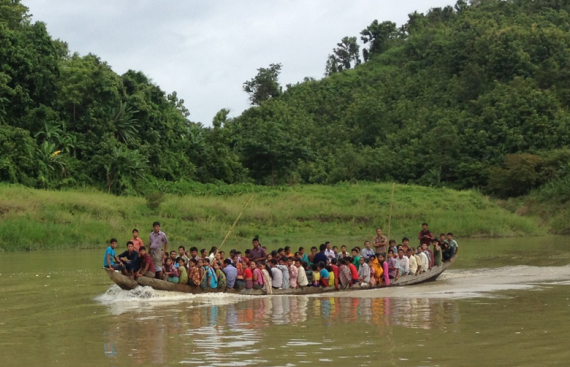Erik Nora
By
Sheuli Akter
To help the poor population living in remote areas, Bangladesh has launched a project to construct 14 landing stations in shoals, where often waterways are the only mode of transportation.
The terminals and landing stations will be built to improve the security, safety, and sanitation conditions, and incorporate the needs of female users, the elderly, and small traders, with women-only toilets and waiting rooms.
The government of Bangladesh on Wednesday signed a $360 million financing agreement with the World Bank also to improve the navigability of 900 km inland waterways under the Bangladesh Regional Waterway Transport Project 1, which will enable year-round safe transport for passengers and cargo along the country’s busiest waterways.
The project will help reduce travel time and cost for cargo and passenger transport, and boost national and regional trade, said a World Bank statement.
“The inland water transportation sector can play an important role in improving domestic connectivity and regional integration. The project will benefit traders, exporters and commuters by cutting down transport time and costs, and enhancing safety, even during night-time travels, which will lead to increased trade and investments,” said Qimiao Fan, World Bank Country Director for Bangladesh, Bhutan and Nepal. “Thus, the project will help Bangladesh increase exports and intra-regional trade.”
The project will help improve the Bangladesh Inland Water Transport Authority’s capacity to comply with international standards and adopt modern management practices for inland water transport, and achieve long-term operational and financial sustainability. “Waterway transport is more energy efficient, and emits significantly lower greenhouse gas compared to road transport. Thus, the project will also help address climate change impacts,” added Jose Luis Irigoyen, Director for Transport and ICT, World.
“As a riverine country, the inland waterways play an important role in addressing transportation needs in Bangladesh, especially for the poor, as well as support trade. Realizing the importance, the Government of Bangladesh provided high priority to modernize the sector, and in particular improve the Chittagong-Dhaka-Ashuganj Corridor that carries the bulk of cargo and passenger transports,” said Mohammad Mejbahuddin, Senior Secretary, Economic Relations Division, Government of Bangladesh.
The agreement was signed by Mohammad Mejbahuddin and Qimiao Fan on behalf of the Government of Bangladesh and the World Bank, respectively, at the offices of the Economic Relations Division.
The credit from the World Bank’s International Development Association, which provides grants or zero to low interest loans, has a 38-year term, including a six-year grace period, and a service charge of 0.75 percent.



No Comments Yet!
You can be first to comment this post!